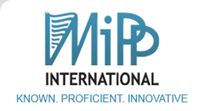Selivanov V.V., Gushchina E.G., Kriukova A.L. Role of Modern Technologies in the Development of Intelligent Tourist Destinations
Victor V. Selivanov
Humanities and Education Science Academy (branch) of V.I. Vernadsky Crimean Federal University in Yalta, Yalta, Russian Federation
Elena G. Gushchina
Volgograd State University, Volgograd, Russian Federation
Anastasiya L. Kriukova
Humanities and Education Science Academy (branch) of V.I. Vernadsky Crimean Federal University in Yalta, Yalta, Russian Federation
Abstract. An increasing number of tourist destinations are using intelligent technologies to improve service and increase the attractiveness of tourist routes. The purpose of the article is to summarize the results of scientific research on how new technologies affect the development of tourism in “smart” tourist regions in order to present the overall dynamics of their impact. In the course of the research, elements of meta-analysis were used, which made it possible to answer the question of the impact of modern technologies in a fairly transparent, objective, and reproducible way, providing unified conclusions based on previous studies that answer similar research questions. In this work, a random effects meta-analysis model was used, calculated using the limited maximum likelihood method. The results confirm the positive relationship between intelligent technologies and tourism development, while informativeness and interactivity are the most important attributes. It should be borne in mind that intelligent tourism technologies (ITT) have changed the natureof tourist experiences: on the one hand, consumers of tourist services have begun to play an active role in jointly creating their own experiences; on the other hand, intelligent tourism technologies increasingly affect the quality of service and are a key tool in creating a richer experience and increasing the value for consumers of travel services. In fact, the use of modern technologies is aimed at creating more attractive, effective, and personalized experiences for tourists. The results confirm the positive relationship between intelligent technologies and tourism development, while informativeness and interactivity are the most important attributes. In addition, there is a negative relationship between security and privacy issues. The conducted research makes it possible to understand the degree of influence of the applied intelligent technologies to increase the popularity and recognition of tourist regions and take measures for their further development.
Key words: meta-analysis, random effects model, intelligent direction, intelligent technologies, intelligent tourism, systematic review, tourist experience.
Citation. Selivanov V.V., Gushchina E.G., Kriukova A.L., 2025. Role of Modern Technologies in the Development of Intelligent Tourist Destinations. Regionalnaya ekonomika. Yug Rossii [Regional Economy. South of Russia], vol. 13, no. 1, pp. 142-149. (in Russian). DOI: https://doi.org/10.15688/re.volsu.2025.1.14
Attachments: /upload/medialibrary/00d/yy6304u3v82gn1oy6free6s5ovtycmo3.pdf







